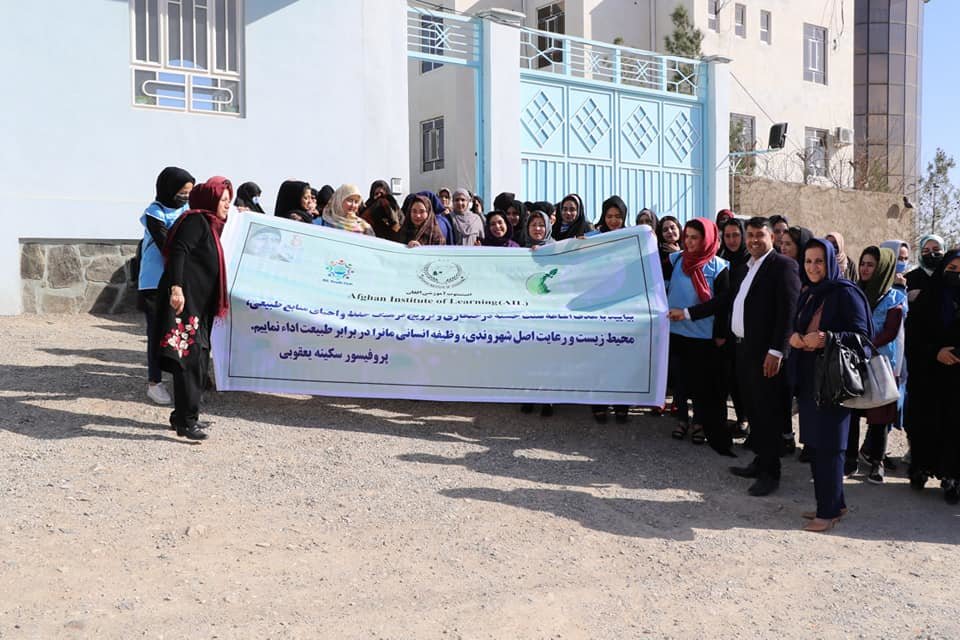By Elizabeth Appleyard | Program Administrator
Afghanistan has been stunned by recent developments and people are adapting as best they can, to a new situation which remains both unclear and uncertain as to the future. AIL’s current priority is to provide urgently needed assistance to the thousands of displaced families who have flooded into Kabul and Herat. We will continue to work towards a more sustainable future. The drought shows how important it is we know everything we can about modern agriculture techniques, the best plants for our region, all things that environmentalism encourages to sustain our world. We also need clean air and water, which plants provide for the people around them. Thus, the health of our nation is tied to the health of our land. We will continue to work on and expand education of this important fact.
Some centers provide a staging point for aid. Our staff are all working, though offices currently are men only with women working from home. The centers are all female and await instructions from the Taliban with regard to procedures required for reopening centers to our students. Our clinics have expanded their capacity to cope with the large numbers of refugees that are in the area.
The Yacoobi private schools are open and operating under the rules that have been given such as dividing male and female. It is exam season and students are studying hard and sitting their exams as usual. It is a great credit to them and their teachers as everyone has heightened levels of fear, stress and anxiety. The private TV and Radio Meraj are not broadcasting but awaiting instructions in how to recommence and staff are creating content and archiving materials for broadcast at a later date.
We have been touched by the outreach of support and outpouring of donations to help the Afghan people. We thank you for standing by Afghanistan as it faces another humanitarian crisis on top of Covid-19 and drought.
Update on Environmental Education
One topic covered recently was prompted by the hot weather in Afghanistan. One aspect of this is irrigation with emphasis placed on replacing old, wasteful irrigation systems and using plants that require less water. Ten teams of students were created to teach about hot weather issues, conserving water, water pollution. Radio Meraj produced clips about saving the environment, reducing water consumption and checking water systems for leaks. In May, the topic was air pollution and how to reduce it as well as campus clean-up campaigns at schools and centers.
Your support is vital in helping us maintain our environmental education program.
Project reports on GlobalGiving are posted directly to globalgiving.org by Project Leaders as they are completed, generally every 3-4 months. To protect the integrity of these documents, GlobalGiving does not alter them; therefore you may find some language or formatting issues.
If you donate to this project or have donated to this project, you can receive an email when this project posts a report. You can also subscribe for reports without donating.
Support this important cause by creating a personalized fundraising page.
Start a Fundraiser